Directions to Louisiana School of Math Science and Arts
Should I go to art schoolhouse?
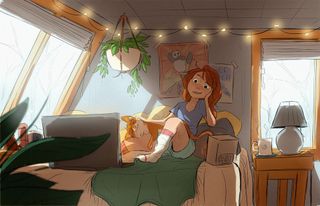
Should I become to art schoolhouse? It's a question you'll be asking yourself if you want to join a big-name studio, work on AAA video games, blockbuster films or a groundbreaking Television series. Is a degree the best pick, or would information technology be meliorate to teach yourself through online tutorials and courses?
We've spoken to artists who accept lived through that decision, and come out the other side with great communication on which pick might be the all-time one for you. Whatsoever choice y'all make, though, you'll need a killer design portfolio, and yous might even discover a dream job or internship over on our design jobs lath.
Then how practise you decide?
Usefully, Lauren Panepinto, creative director and VP of Orbit Books, has created a tongue-in-cheek flowchart that can help guide you towards an informed choice.
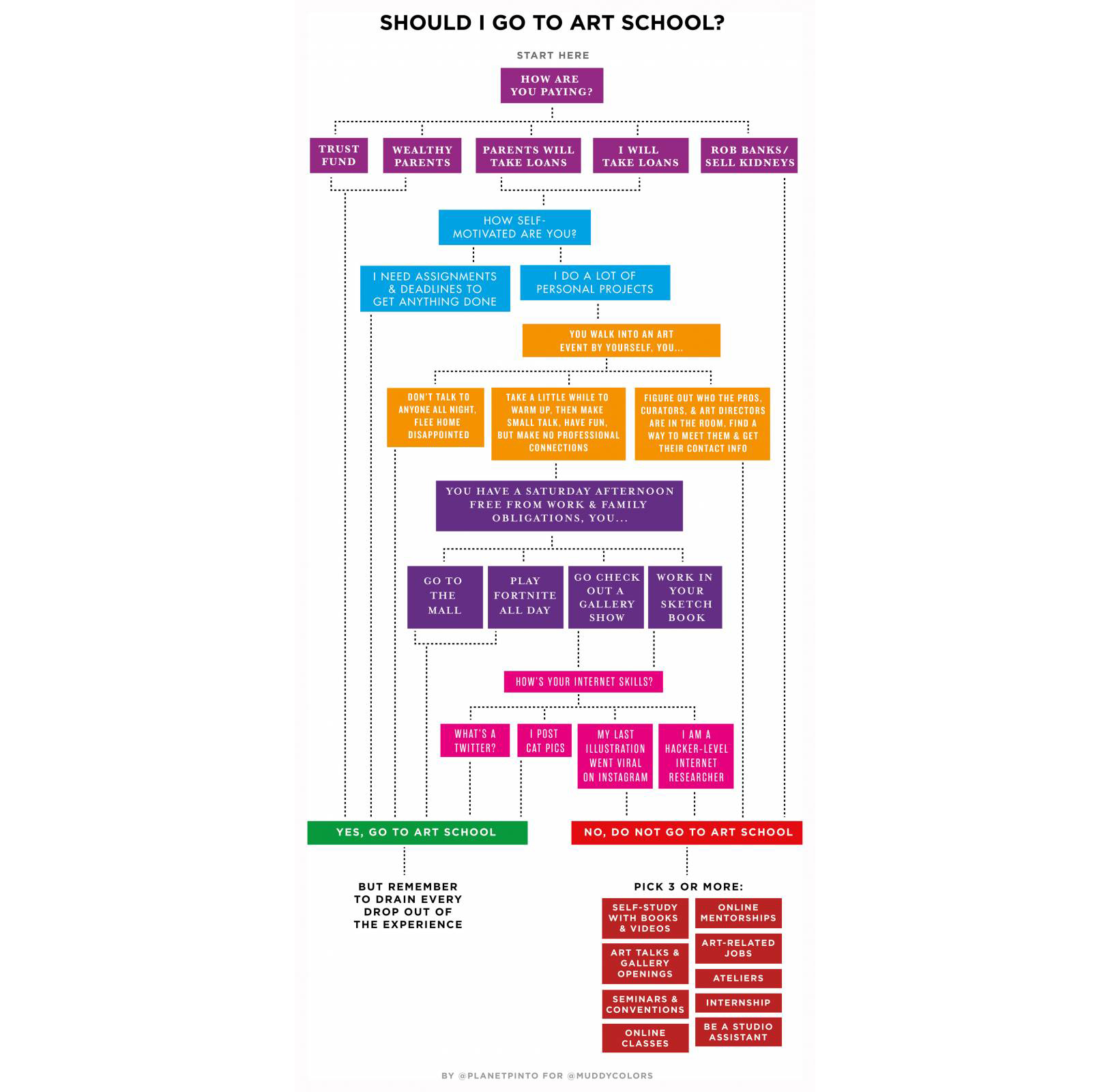
But if that hasn't quite helped you brand upwards your heed for y'all, hither are some more words of wisdom from successful artists.
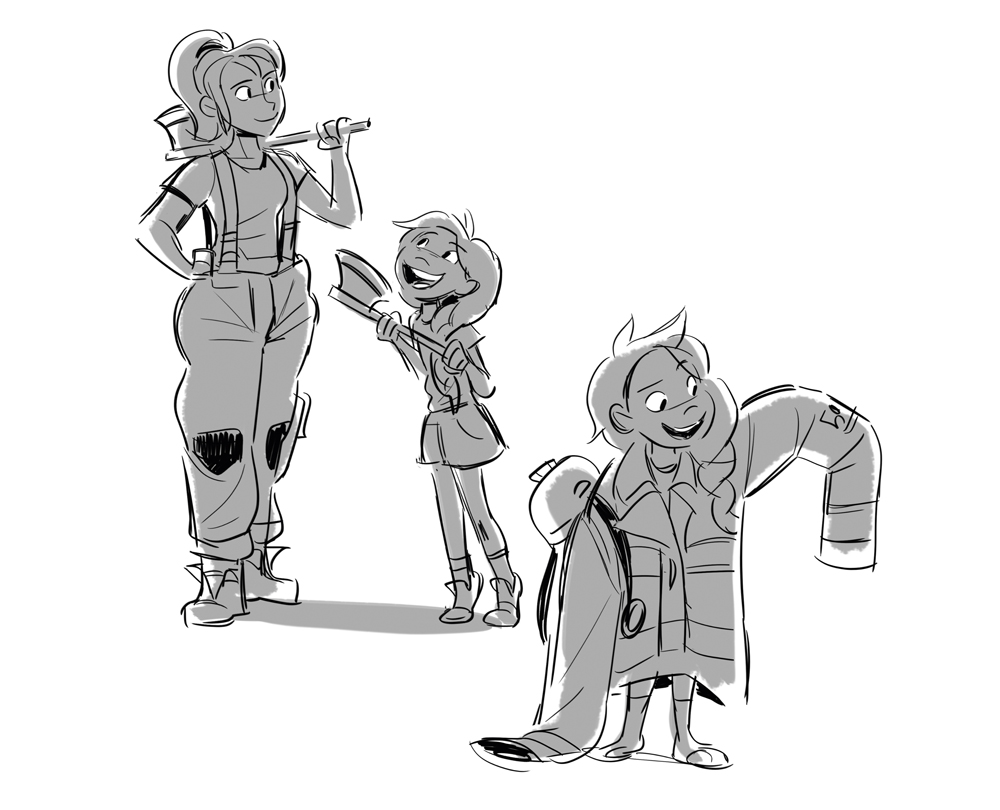
In 2016, Daniel Tal graduated with a BA in applied arts animation from Sheridan College in Oakville, Canada. He's since been employed as a story artist with Pipeline Studios in Hamilton, so the formal path conspicuously worked for him. Nevertheless he has a startling admission. "I realised virtually a twelvemonth or 2 into college that the entire curriculum, more or less, "was doable on my own," he recalls. "Almost everything school teaches you, you can learn yourself through books and the internet."
That said, Tal doesn't regret his BA. "I'g non the type of person who can cocky-regulate well," he says, "and going through a formal programme forces you to avoid procrastination." It also exposes y'all to things y'all might not have considered. "I only found interest in storyboarding in my 2nd year of college," says Tal. "Had I not gone, I don't retrieve I would accept ever tried it."
School doesn't have it all

Not all courses are perfect, of course. Mélanie Bourgeois, now a concept artist for Volta, had a less-than satisfactory experience studying second and 3D blitheness at a university in Quebec. "I was function of the first cohort, so a lot of things moved around when I attended," she says. "None of the teachers were 2d animators, and while they were very prissy, none of them had the skills to mentor a student hands-on when it came to 2nd." Consequently, Bourgeois had to make full in the gaps herself, using online learning resources. Still she's unsure how well she'd take coped if she'd cocky-taught entirely. "School helped me focus; I might have found it overwhelming all on my own," she says.
"Online learning as well doesn't provide the same level of contacts and networks, or force you to consume culture outside your personal tastes." The choice largely depends, Conservative feels, on the private. "I know many successful artists who are self-taught," she says. "And no one is going to turn down a skilful creative person because they don't accept a slice of paper."
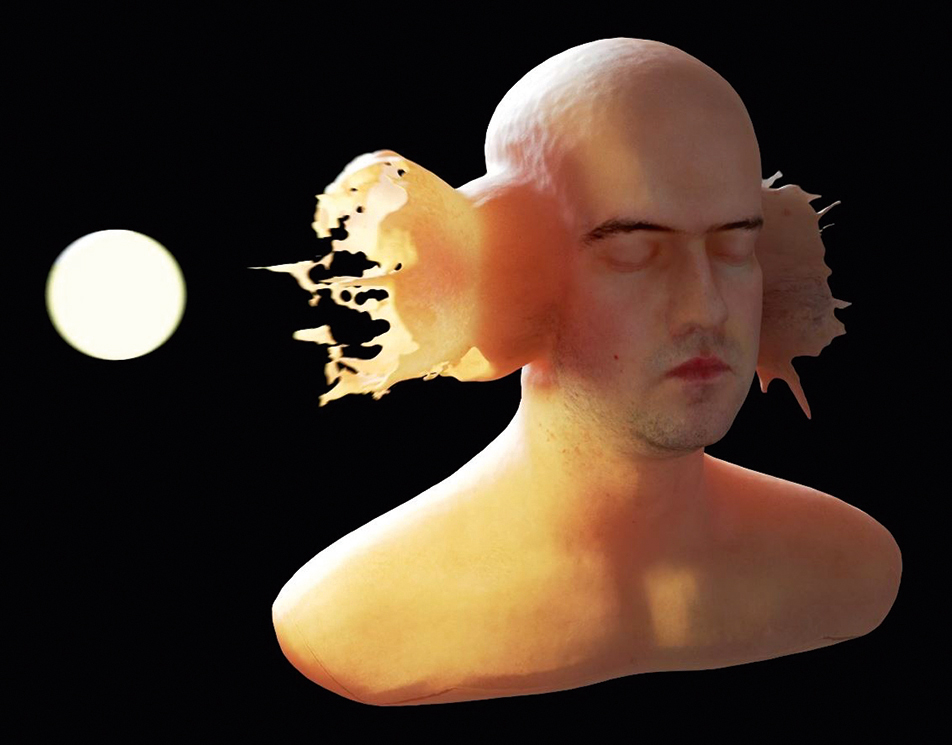
Just if both paths are valid, which is right for you? "It'southward a very tough decision, with many factors to consider," says Nick Fredin of online course provider CG Spectrum. A major i is cost: "In the US, degrees can cost over $100,000, with no guarantee of a job at the end of it." Going it alone, though, tin be daunting. "Without structured pathways guiding you towards your goals, self-teaching can exist overwhelming and frustrating," he cautions. "Opening a tool similar Maya for the first time can be pretty scary."
Educatee debt can be a cistron

And then what's Panepinto'southward personal have? "I'thousand glad I went to art school," she says. "Merely if I had to do it over again, and get into deep debt as a outcome, I probably wouldn't. I'd get to a community college, get a cheaper, well rounded degree, and study art on the side. I'd use the coin I'd saved to travel to seminars and conventions, and accept online mentorships."
You'd might look Sean Andrew Murray – a concept creative person for the entertainment industry who also teaches Illustration at Ringling College of Art and Design in Florida – to disapprove of self teaching. But he, besides, can encounter the benefits. "It enables you lot to arts and crafts exactly the kind of education yous want, without all of the stuff yous don't," he says.
"You can learn at your own step, whether that'south slow and steady – mayhap while working another job – or speedily, to get into the field quicker than the standard iv year higher education program."
Edifice a network
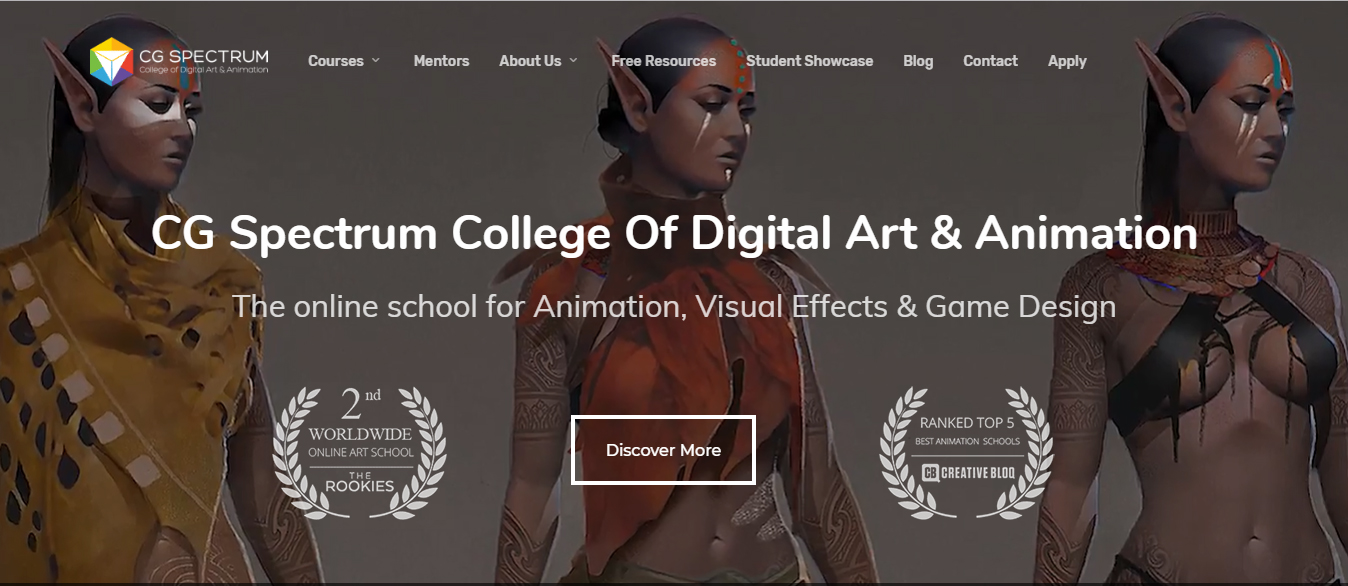
One big disadvantage, though, is that information technology'll probably be harder to build your network.
"The best schools connect students with a network of professors – many of whom may exist industry pros themselves – likewise as advisers, visiting artists, networking and recruiting events, and too other students, who act equally your back up organisation for years to come," Murray says.
In truth, though, for most students information technology'due south not a instance of choosing between two directions, only a mixture of both. Those in academia will supplement their courses with online learning, while going the self-instruction route doesn't necessarily mean taking a scattergun, isolated arroyo. Some online courses are pretty close to those offered by traditional universities. Take CG Spectrum, which offers courses in animation, VFX and game design.
"Nosotros offer specialised online teaching taught by honor-winning mentors who are working in the industry, and so you're being taught by the very best." says Fredin. "Our courses are built with input from major studios, so you graduate with the skills that employers are hiring for. We cut out all the dissonance and simply teach what's industry-relevant, then students aren't wasting their difficult-earned money."
A virtual classroom
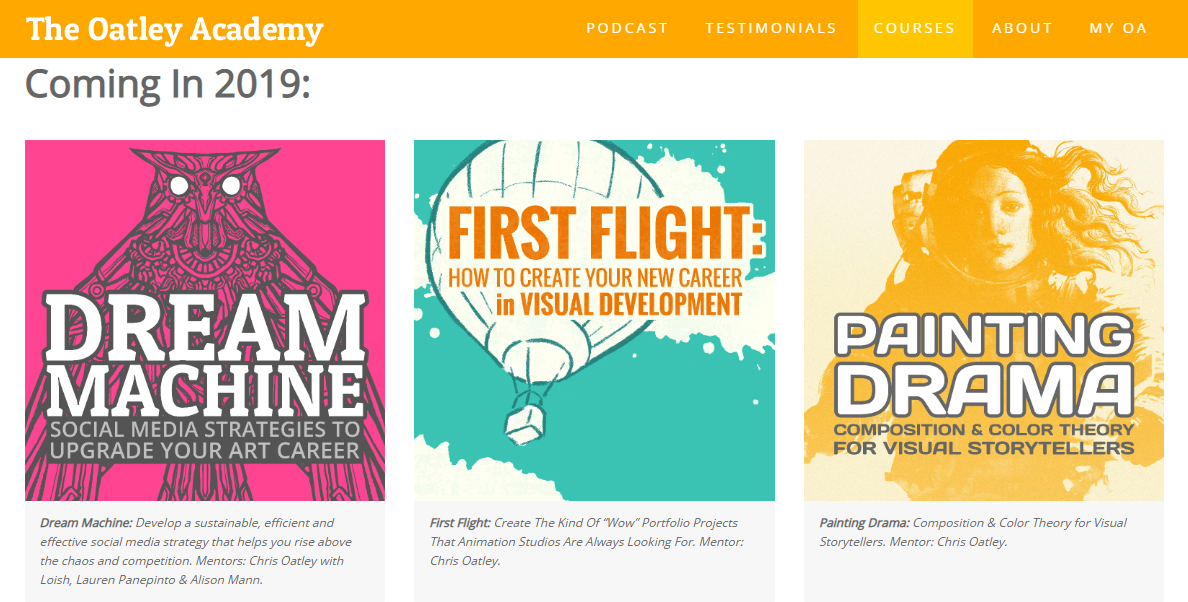
The Oatley Academy of Visual Storytelling, which helps artists further their careers in animation, analogy, games and comics, takes a similar line. Equally its founder, Disney artist Chris Oatley, says: "Although we're an online school, we offer real-fourth dimension mentorships, where you work with the instructor and your fellow classmates in a virtual classroom setting, just like you lot would in a physical schoolhouse. To me, 'Physical or online?' is not the question. The question is: 'How effective is the education?'"
In general, Oatley recommends what he calls a "Frankenstein approach" to art education. "Seek out the best teachers – whether online or offline – and learn from them," he advises. "Information technology really can exist that simple… and far more affordable."
This article was originally published in ImagineFX , the world's best-selling mag for digital artists. Subscribe to ImagineFX .
Read more:
- How to break into pixel art
- How to become a design job: 7 skilful tips
- Pattern jobs: find your dream role with Creative Bloq
Related manufactures
wagnershadeopleil.blogspot.com
Source: https://www.creativebloq.com/advice/should-i-go-to-art-school
Post a Comment for "Directions to Louisiana School of Math Science and Arts"